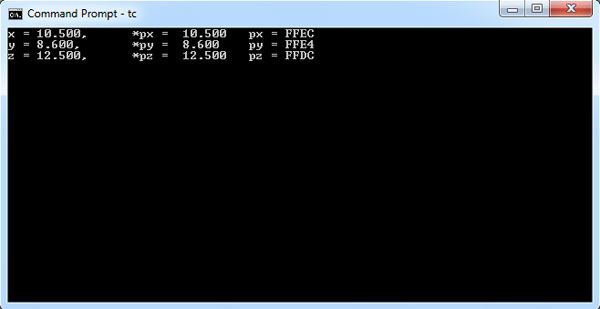The typedef may be used in declaration of a number of pointers of the same type. It does not change the type, it only creates a synonym, i.e., another name for the same type as illustrated below.
typedef float* FP; // Now FP represents float*
float x,y,z;
FP px =&x, py = &y, pz = &z ; // Use of FP
In the above code px, py, and pz are pointers initialized with addresses of x, y, and z respectively.
Illustrates use of typedef in pointer declaration.
#include <stdio.h> void main() { typedef double* Dp; double x = 10.5,y = 8.6, z = 12.5; Dp px = &x , py = &y, pz = &z; clrscr(); printf("x = %.3lf,\t *px = %.3lf\t px = %p \n", x, *px, px); printf("y = %.3lf,\t *py = %.3lf\t py = %p \n", y, *py, py); printf("z = %.3lf,\t *pz = %.3lf\t pz = %p \n", z, *pz, pz); }
The expected output is as given below.

 Dinesh Thakur holds an B.C.A, MCDBA, MCSD certifications. Dinesh authors the hugely popular
Dinesh Thakur holds an B.C.A, MCDBA, MCSD certifications. Dinesh authors the hugely popular